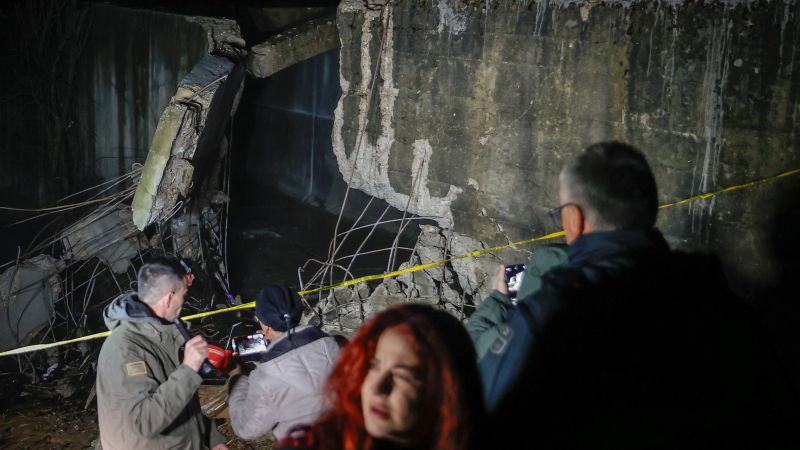The canal feeding the main power plants in Kosovo suffered severe damage due to an explosion, a disaster that Prime Minister Albin Kurti has labeled as a ‘terrorist attack.’ In his address to the nation, broadcasted live on national television, the PM described it as a “criminal and terrorist attack with the aim to destroy our critical infrastructure.”
He further relayed the gravity of the situation by stating, “The intention was to put our nation’s vital support systems at risk, which we cannot take lightly.” The allegations swiftly followed an initial assertion by Kosovo President Vjosa Osmani, who also pointed fingers at Serbian criminal gangs for the incident. However, both officials did not provide any shreds of evidence to substantiate their claims.
The canal, pivotal for the distribution of the cooling water to Kosovo’s two key lignite-fired power plants, underwent significant damage due to the explosion. Apart from local disruptions in electricity supply, there might also be potential economic implications as energy production and distribution form a substantial part of Kosovo’s economy.
Kosovo and Serbia’s longstanding tensions have been aggravated, stuck for years in EU-mediated talks with faultering progress, mainly due to disagreements over Kosovo’s status. The ill-happenings could potentially spiral the historic imbroglio further, impacting the fragile relationship between the two Balkan countries. Both nations share an ethnically divided past that has seen periods of unrest and violence since the breakup of Yugoslavia in the 1990s.
The alleged ‘terrorist attack’ has drawn international attention. Several regional and international partners, including the European Union, have expressed their concerns and called for a swift and comprehensive investigation. They also emphasized the immediate necessity to de-escalate tensions between the two nations and work towards a solution that guarantees peace and stability in the Balkan region.
Authorities have scaled up the security measures across the affected region to maintain calm and ward off any potential threats. The police and law enforcement agencies have been asked to increase surveillance, particularly near the critical infrastructure. Confirming these measures, an Interior Ministry spokesperson remarked, “We are leaving no stone unturned to ensure the security of our people and infrastructure.”
Meanwhile, Serbia has responded by dismissing Kosovo’s accusations of orchestrating the explosion. Serbia’s office for Kosovo said in a statement, “We categorically reject such accusations that only contribute to inflaming the situation.” In the web of allegations and counter-allegations, the task remains for investigators and law enforcement to uncover the truth behind the incident.
The escalation of tensions between Kosovo and Serbia, amidst already flaring ethnic discord, warrants urgent international diplomacy and enforcement of agreed-upon treaties. The act, underlined by criminal intent, is an affront to the common principles of peace and stability. For now, Kosovo grapples with the task of repairing this crucial lifeline amidst growing mistrust with its neighbor, Serbia.
This event draws the contours of an alarming issue, namely ensuring the safety of critical infrastructure, specifically in regions having pronounced ethnic or political divisions. As authorities continue to investigate the series of events, all eyes are on Kosovo and Serbia, a flash point in the Balkans that presents just another challenge to the broader quest for regional stability and peace.




